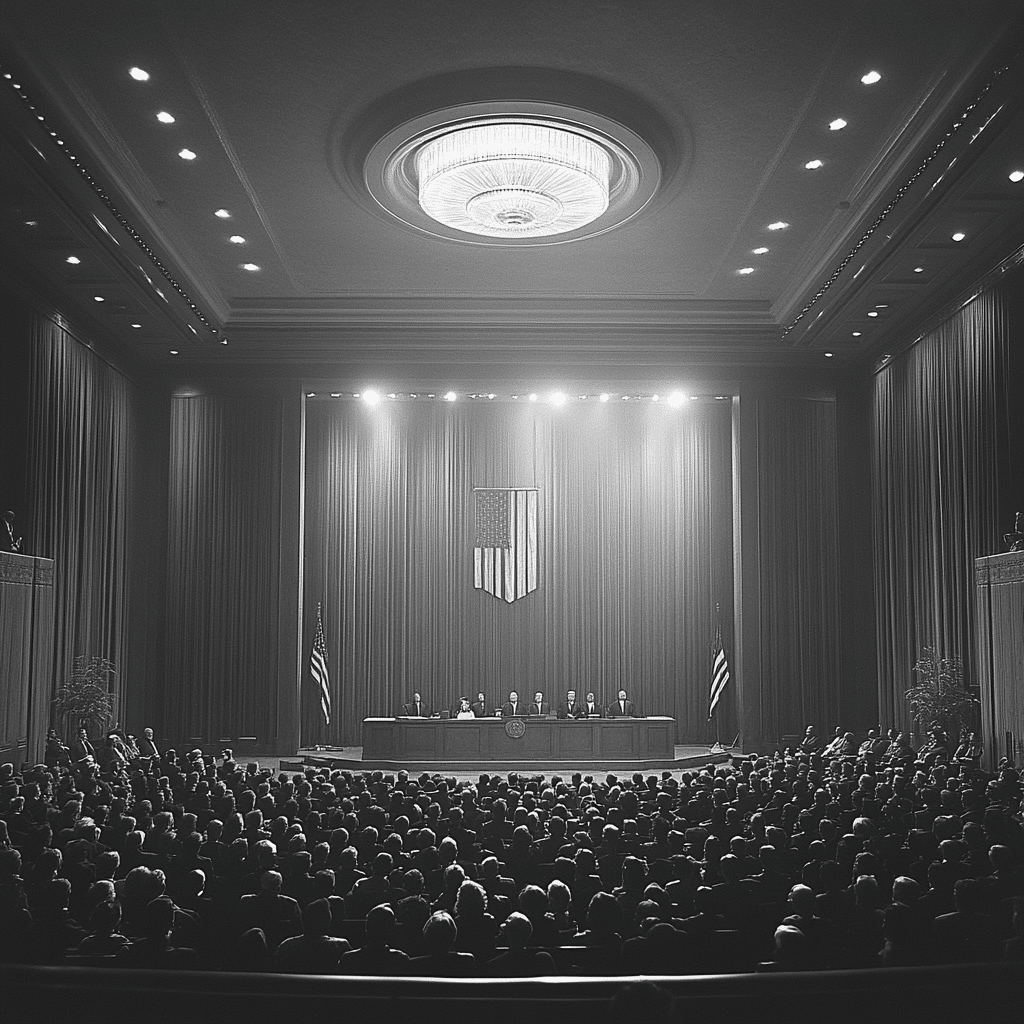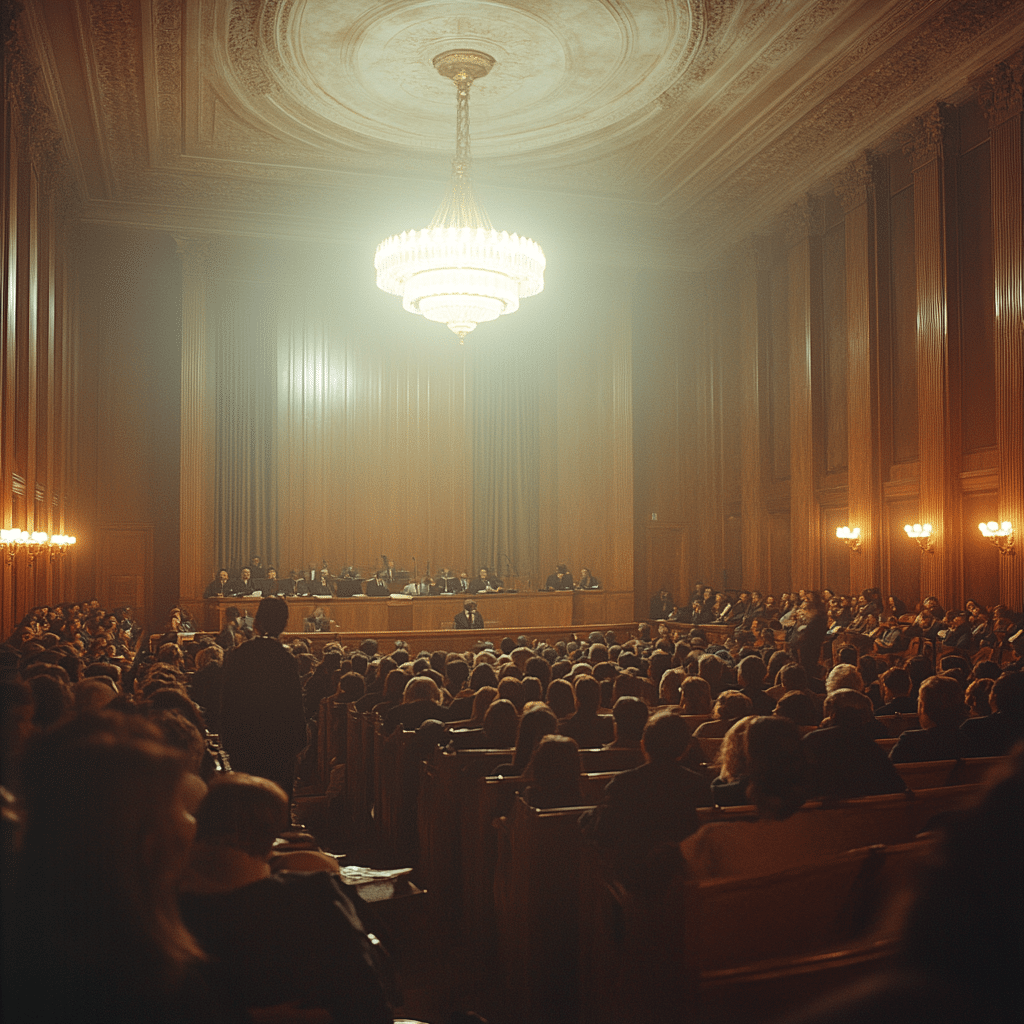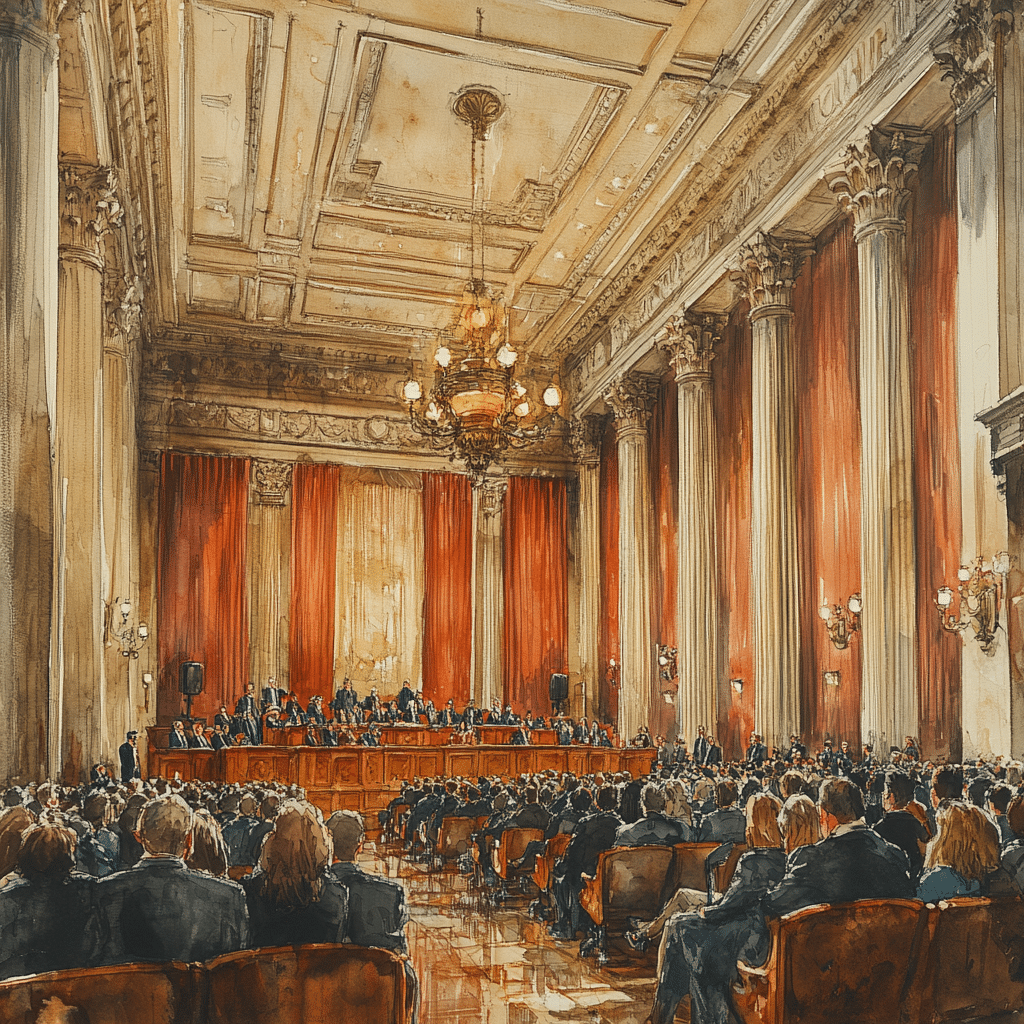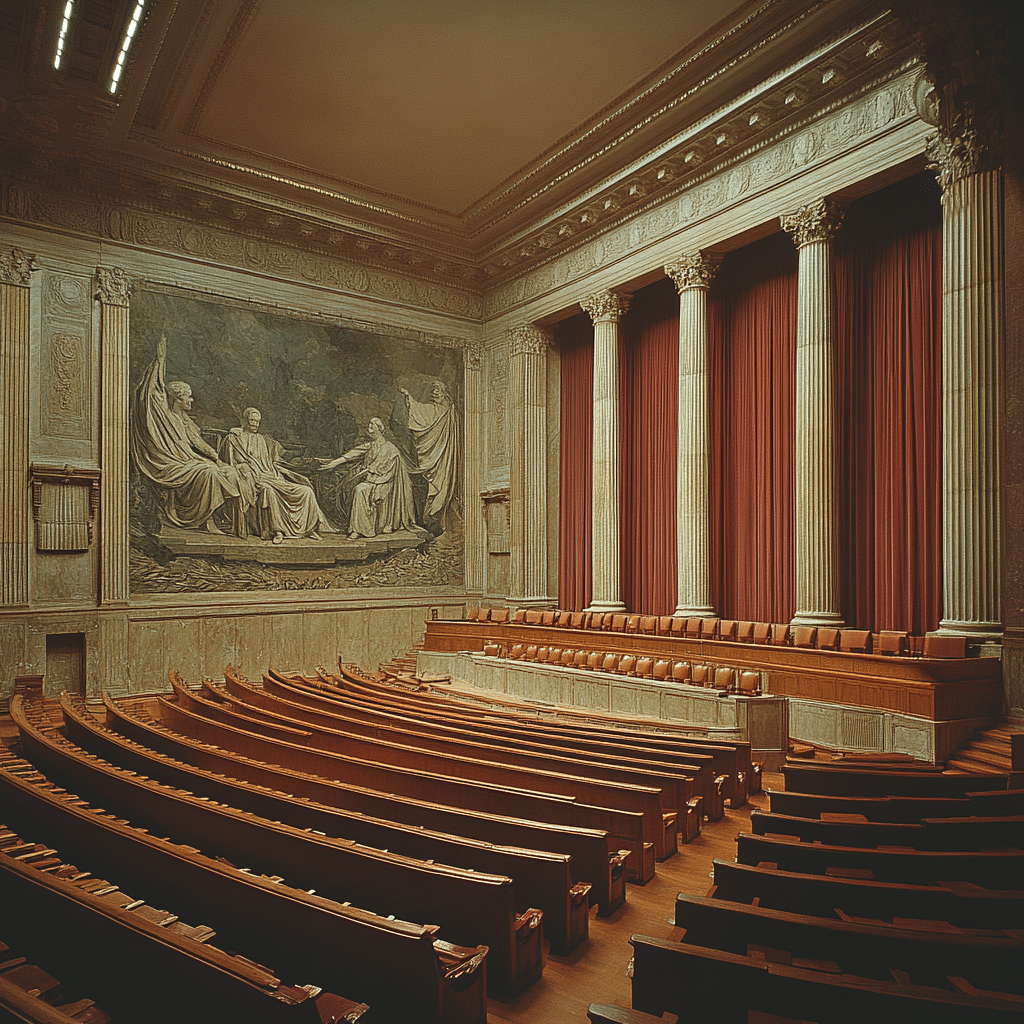America stands divided on numerous fronts, and few organizations stand as iconic in this battle as the American Civil Liberties Union (ACLU) and the National Rifle Association (NRA). Their influence in the Supreme Court showcases the essential fight between civil liberties and Second Amendment rights. This battlefield encapsulates the United States’ core values, manifesting in landmark Supreme Court decisions that shape our society. In 2024, we revisit these pivotal rulings to understand better how they impact our legal framework and public policy.
The Complexity of Civil Liberties and Gun Rights
In contemporary America’s legal arena, high-stakes causes frequently bring the ACLU and NRA to the Supreme Court’s hallowed halls. Their battles often shape the nation’s core freedoms, presenting a unique crossroads of civil liberties and Second Amendment rights. The ACLU NRA Supreme Court decisions influence every American and continue to inspire fervent debates. Let’s delve into the most influential cases that spotlight their enduring impact.

Landmark Rulings Illuminating First and Second Amendment Rights
Perhaps the most significant Second Amendment ruling in recent history, District of Columbia v. Heller saw the NRA champion the individual right to possess firearms unconnected with service in a militia. The Supreme Court’s 5-4 decision, penned by Justice Antonin Scalia, solidified the interpretation that the Second Amendment protects an individual’s right to own a gun for lawful purposes, such as self-defense within the home. This watershed ruling has been a cornerstone in subsequent judicial interpretations of the Second Amendment.
Addressing the intersection between free speech and gun rights, the NRA opposed the disclosure of petition signers’ identities, arguing it infringed on free speech and deterred political participation. The ACLU, contrarily, supported transparency. The Supreme Court’s 8-1 decision upheld the state’s interest in protecting the election process’s integrity, emphasizing the delicate balance between privacy and public interest.
Building on the Heller decision, McDonald v. City of Chicago represented another NRA victory, affirming that the Second Amendment’s guarantee of an individual’s right to bear arms is fundamental and is incorporated by the Due Process Clause of the Fourteenth Amendment against state infringement. This decision extended Heller’s impact nationwide, significantly affecting state and city gun regulations.
| Subject | Details |
| Entity | American Civil Liberties Union (ACLU) |
| Key Supreme Court Case | Reno v. ACLU (1997) |
| Decision | The Supreme Court ruled that the federal Communications Decency Act (CDA) is unconstitutional. |
| Impact | Affirmed the importance of protecting free speech on the internet. |
| Entity | National Rifle Association (NRA) |
| Key Supreme Court Case | NRA v. Vullo (2024) |
| Decision | The Supreme Court unanimously reinstated the NRA’s claim against Vullo. |
| Key Ruling Points | NRA is not immune from government investigations and regulations. |
| Justice Comment | Sotomayor explained the NRA’s exposure to government scrutiny while addressing free speech concerns. |
| Related Case | Tinker v. Des Moines (1969) |
| ACLU’s Role | The ACLU defended public school students, winning a major First Amendment victory. |
| Decision | Supreme Court ruled that students do not shed their constitutional rights at the school door. |
| Impact | Set a precedent for student free speech rights in public schools. |
| Additional Notes | The Court acknowledged that state power cannot be used to punish or suppress disfavored expression, applying the Bantam Books framework. Offering protections for both individual and organizational speech. |
Civil Liberties: Beyond the Second Amendment
The ACLU has championed numerous civil liberties cases, most notably United States v. Windsor and Obergefell v. Hodges. These rulings, respectively, struck down the Defense of Marriage Act and legalized same-sex marriage nationwide. They highlight the ACLU’s unwavering commitment to expanding civil liberties and individual rights, a mission sometimes at odds with the NRA’s narrower focus on Second Amendment protections.

Rising Tensions and Evolving Legal Interpretations
More recently, the Supreme Court continued to delineate the scope of the Second Amendment in New York State Rifle & Pistol Association v. Bruen. This case saw the Court strike down New York’s stringent restrictions on concealed carry, aligning with the NRA’s stance that such regulations infringed on constitutional rights. The decision marked a significant shift, signaling the Court’s readiness to revisit and possibly broaden previous Second Amendment interpretations.
The ACLU’s commitment to safeguarding civil liberties was evident in its challenge against the Department of Homeland Security’s surveillance and detention practices in ACLU v. Department of Homeland Security. The Supreme Court’s ruling highlighted the importance of governmental accountability and transparency, reinforcing fundamental rights against executive overreach, especially in national security contexts.
Broadened Horizons and Future Legal Battles
Reviewing these landmark cases reveals the substantial influence the ACLU and NRA wield in legal discourse on civil liberties and gun rights. With the confirmation of new justices in 2023, the Supreme Court’s ideological makeup has shifted, potentially altering the future legal battleground.
Navigating the Path Ahead
The intertwined fates of the ACLU and NRA illustrate the profound complexities inherent in American constitutional law. As these legal clashes continue, the landscape of national debates on freedom, safety, and individual rights will undoubtedly evolve. Both organizations remain unwavering in their missions, but the ultimate decision-makers—the American people and their representatives—will shape future trajectories through legislative actions, societal values, and judicial scrutiny.
In the end, the lasting impact of these Supreme Court rulings will persist, continuously shaping the fabric of American jurisprudence, where civil liberties and the right to bear arms remain as pivotal as the nation’s founding principles.
As we navigate these turbulent waters, it’s worth noting how such decisions affect other spheres of life. For instance, financially savvy conservatives might find looking into home loan interest crucial for securing a stable future. Likewise, the evolving nature of pop culture icons, from Katakuri to the actor Of sirius black, reflects our society’s rich tapestry. We must stay vigilant and engaged, cherishing every victory and learning from every loss, as they collectively define who we are as a nation.
ACLU NRA Supreme Court: Landmark Rulings and Fascinating Facts
The Dynamic Duo: ACLU and NRA
When we talk about landmark rulings in the ACLU NRA Supreme Court arena, it’s like diving into a thrilling saga. The ACLU (American Civil Liberties Union) and the NRA (National Rifle Association) have played pivotal roles in shaping America’s judicial landscape. From the corridors of the Supreme Court, these organizations have fought battles over civil liberties and gun rights that have impacted our everyday lives.
But did you know Aaron Paul, the celebrity known for his role in “Breaking Bad,” has a surprisingly high net worth? This bit of trivia might seem unrelated at first, but it shows how various facets of our society, including influential figures, intersect to create a broader cultural fabric that these landmark cases often influence.
Historic Cases with Modern Relevance
One of the most gripping cases was District of Columbia v. Heller. It was an NRA-backed case that led the Supreme Court to rule that individuals have the right to possess firearms unconnected with militia service. In a similar vein, the ACLU has challenged numerous laws that restrict civil liberties, continuously reshaping legal interpretations and societal norms. Interestingly, unrelated but intriguing, you might find it fun to know that the intriguing 48 Porter Road in Andover , Ma is famous for its architectural charm and historical secrets.
On a different but equally captivating note, have you ever stumbled upon a M523 white oval pill? It’s known within the medical community for its strong effects and has been part of serious discussions on drug regulation, another area where ACLU’s advocacy for civil liberties often clashes with governmental regulations.
Pop Culture’s Influence on Legal Discourse
The ACLU NRA Supreme Court rulings often come up in popular culture, reflecting our society’s ongoing debate about rights and regulations. Ever heard of The Day I Became a God? It’s a fascinating series that explores themes of power and control, much like the real-world dynamics you see in these landmark legal battles. Check out some insights about it here, and you’ll notice how pop culture mirrors our ideological conflicts.
Remember, understanding the ACLU NRA Supreme Court’s historic rulings isn’t just about legal jargon. It’s about seeing how these decisions ripple through our daily lives, from the architecture we admire to the pills we debate about. Each ruling carries stories and trivia that are as diverse and surprising as the cultural elements they ultimately influence.

Was the NRA overturned by the Supreme Court?
The Supreme Court didn’t overturn the NRA but rather reinstated their claim against Vullo, stating that while the NRA is not immune from government investigations, Vullo can’t use state power to punish or suppress disfavored expression.
What did the Supreme Court rule in Reno v ACLU?
The Supreme Court, in Reno v. ACLU, determined that the federal Communications Decency Act (CDA) was an unconstitutional restriction on free speech, emphasizing the importance of open and participatory mass communication on the internet.
What is one major Court case that the ACLU is involved in?
The ACLU was instrumental in the Supreme Court case Tinker v. Des Moines, which secured a significant First Amendment victory for public school students suspended for wearing black armbands to protest the Vietnam War.
What did the Supreme Court state about the NRA and executive power?
The Supreme Court articulated that while Vullo could criticize the NRA and attempt to persuade others forcefully, she was forbidden from using executive power to penalize or suppress their views.
Why was the NRA declared unconstitutional?
The NRA was not declared unconstitutional; the Supreme Court’s decision did not include a declaration of unconstitutionality against the NRA.
Why did the Supreme Court declare the AAA and NRA unconstitutional?
The Supreme Court did not declare the Agricultural Adjustment Act (AAA) and the National Recovery Administration (NRA) unconstitutional in the context provided, so there’s no relevant statement here.
Who won the Reno v. ACLU case?
The ACLU emerged victorious in the Reno v. ACLU case, protecting free speech on the internet.
How many of the 9 justices agreed with the majority decision in Reno v. ACLU?
All nine justices agreed with the majority decision in the Reno v. ACLU case, affirming the unconstitutionality of the CDA.
What was the Court’s decision in the Supreme Court case of ACLU v Myriad?
In ACLU v. Myriad, the Supreme Court ruled that naturally occurring DNA segments cannot be patented, which was a decision favoring the ACLU’s stance.
Who funds the ACLU?
The ACLU receives funding from various sources, including individual donors, foundations, and membership dues.
What are the controversial positions of the ACLU?
The ACLU holds several controversial positions, including defending free speech rights for unpopular or controversial groups, and challenging laws they believe infringe on civil liberties.
What is the most famous court case of all time?
The most famous court case of all time is often considered to be Brown v. Board of Education, which ended racial segregation in public schools.
What did the Supreme Court rule about the NRA today?
Today, the Supreme Court reinstated the NRA’s claim against Vullo, emphasizing that she can’t suppress the NRA’s expression using executive power.
What is the Second Amendment NRA?
The Second Amendment, as interpreted by the NRA, guarantees individual Americans the right to keep and bear arms for personal protection.
Why was the NRA declared unconstitutional quizlet?
There is no record of the NRA being declared unconstitutional, so this entry wouldn’t apply in the provided context.
When was the NRA repealed?
The NRA was not repealed; the mention likely conflates the National Rifle Association with historical acts or different cases.
What did the Supreme Court rule on gun ownership?
The Supreme Court has consistently upheld the individual right to gun ownership under the Second Amendment in various rulings.
Did the Supreme Court declare the National Industrial Recovery Act unconstitutional?
Yes, the Supreme Court did declare the National Industrial Recovery Act (NIRA) unconstitutional in 1935, which led to the dismantling of the National Recovery Administration.
Did the Supreme Court declared the National Recovery Administration unconstitutional True or false?
True, the Supreme Court declared the National Recovery Administration (NRA) unconstitutional in 1935 due to overreach in its regulatory scope.





































